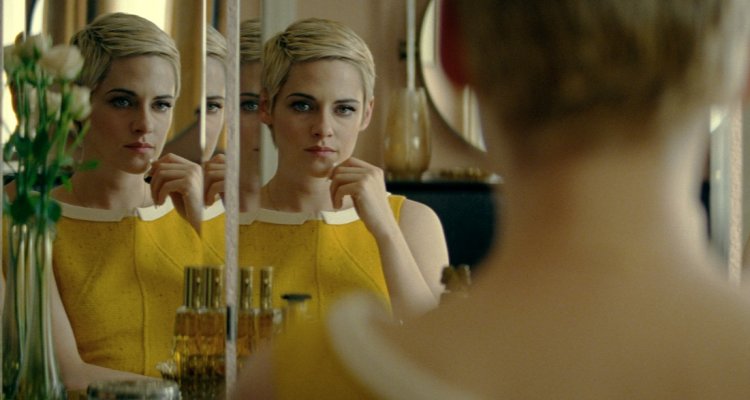The second feature from Benedict Andrews, “Seberg” opens in 1968 towards the end of actor Jean Seberg’s (Kristen Stewart) career. After considerable success starring in French New Wave films like Jean-Luc Godard’s “Breathless,” Seberg returns to Hollywood to continue working, leaving behind a young son and a loving (but occasionally unfaithful) husband. But the film soon becomes less concerned with her place in Hollywood than the events that drove her career to its end. Her support for civil rights groups, most notably the Black Panther Party, catches the attention of the FBI, and an intense political thriller ensues, with Jack (a welcome return to the screen from Jack O’Connell) brought in to observe Jean’s actions. Jack becomes increasingly uncomfortable as his partner Carl (Vince Vaughn) begins to blur the lines of what is legal, crossing boundaries and spreading rumors about Seberg’s life and relationships.
READ MORE: Get your first look at Kristen Stewart as Jean Seberg in the upcoming biopic
The film considers how these historical events have affected the modern day; the spread of fake news in the film gives the story a topical edge, as well as its brief look into the fight for racial equality happening at the time. News coverage of the 1968 Watts riots plays in the background, and Jean and Black Power movement activist Hakim Jamal (Anthony Mackie) discuss the issue of racism in America, hoping that, by changing minds, the world can be changed. It’s a hopeful view, but the film doesn’t share its characters’ optimism, considering that decades later racial inequality in the US is no closer to being solved. (In a somewhat ironic point, Jack raves about his love for the Captain America comics only to spend the rest of the film trying to bring down the new holder of Cap’s
shield in the Marvel Cinematic Universe, Mackie himself.)
READ MORE: Here are the 15 must-see movies at this year’s Venice Film Festival.
But Andrews doesn’t seem to be wholly interested in his Black Panther characters, soon casting off Hakim and his wife–played with piercing sharpness by Zazie Beetz–who question Jean’s intentions in throwing money at a cause without doing much else to help. Instead, it prioritizes an exploration of the moral question of surveillance, and Jack’s guilt about pushing Jean into a paranoid state, rather than fully address the nature of Seberg’s activism. One reason for this could simply be that, due to it being based on real events, there are too many characters included for the film to feel like it does everyone involved in the story justice. Scenes placed in to fill out more minor characters, like those of Vince Vaughn and Margaret Qualley, end up shaving off the depth of others that should have more time.
Stewart herself gives a performance that recalls the quiet power she wields in her award-winning turn in Olivier Assayas’s “Personal Shopper.” Dressed in yellow for most of the film–driving a yellow convertible and constantly drinking–she stamps her own style onto a famous figure. It seems less of a parody and more an interpretation of her character. Alone for much of the film, but constantly surrounded by couples, she’s enigmatic and hard to read, swinging between effortless cool and desperate loneliness. Cinematographer Rachel Morrison, having recently picked up an Oscar for her work on “Mudbound,” hones in on her physicality. Between the burns Seberg received from working on an Otto Preminger “Joan of Arc” film gone wrong and her constant surveillance from the authorities, she’s both physically and figuratively naked. Her house is mostly glass; huge floor to ceiling windows allow the surveillance team to see everything. Jean resembles an animal trapped on display, to be looked at in the movies she makes, and now also to be observed in her personal life. This feeling of exposure isn’t helped by the fact that Jean’s house in the film is also featured in Sophia Coppola’s “The Bling Ring,” a film where Hollywood teens break into houses with ease and rob celebrities of their possessions.
As the film progresses, Jean unravels under the stress of being constantly watched, but not knowing who by, her mental health suffering as a result. As is the case with watching a tragic life played out on screen, Seberg is no easy watch. Andrews’ decision to show only a few years of the actor’s life adds a sensitivity to already sensational material. With exquisite costume design, cinematography and a talented supporting cast, there’s plenty to admire in Seberg. However, the film’s sprawling and unwieldy narrative is ultimately what hinders it, leaving a drama that focuses in on a single person somehow feeling shallow and impersonal. [C+]

